The Wine Crisis: Why Are Younger Generations Drinking Less Wine? 🍷
And legit solutions from 34,000+ Gen Z, Millennial, and Gen X'ers
FYI - scroll to the middle if you want the data. Read on for context
For the past 6 months or so, it seems like every other headline in my inbox is shoving the same thing down my throat - younger generations are drinking less wine, and people are freaking TF out about it.
Yes, this is absolutely a problem for the wine industry and one that needs to be taken seriously. Especially if we want this cherished industry to stay around & share it with our kids and grandkids.
But WHY aren’t these generations choosing wine and what can we do about it?
I couldn’t find clear answers to these questions, so I decided to take matters into my own hands… and found more insights than I imagined on a platform that most of the industry seems to be afraid of… ~*TikTok*~
The Golden Days of Wine
This issue isn’t going to be solved with finger pointing and stamping our feet about “the way things were”.
The same philosophy around the stock market applies here: Past performance does not guarantee future results.
The marketing and sales methods that worked for wine for the past few decades aren’t cutting it anymore, and doubling down on them is only digging our grave faster.
Currently, the core purchasers of wine are those aged 65+, or “Boomers”.
They grew up with wine as the beverage of choice, the one that signaled you were classy and well-off (the American dream), and it was a normal part of everyday society.
They didn’t have the plethora of other beverages to choose from like we do today. The choices were wine, beer, or spirits. And Boomers have pretty much remained constant in their purchasing decisions to this day.
But unfortunately, as Boomers continue to age, they are starting to drink less wine, and sadly, pass away.
It feels like all the eggs have been put in the Boomer basket, and the concern is that the marketing tactics that appealed to this generation aren’t working as well on younger folks.
Here’s pretty much how it’s gone for the past few decades:
Winemakers put juice in a 750 mL bottle, slap a critic score on it like “97 points!”, call it something fancy like, “Reserve” and use poetic lingo to describe the tasting notes. Done. Sold. Rinse & repeat.
In the late 1970’s and 80’s, there wasn’t nearly as much wine competition as exists today, and the pioneers of these tactics were met with great success.
But fast forward 50 years later… and wine has become a confusing sea of similarity.
Navigating the wine aisle is confusing and daunting, even for me as a Sommelier and wine professional. I know how scary it feels to be an everyday consumer without significant wine knowledge, trying to decipher a wine menu or rows of identical shelves, because I was one for years.
This cookie cutter method has left us with an overwhelming number of options to choose from, with bottles that all pretty much look the same and use the same lingo, even though it’s a foreign language to most.
Where’s the innovation? Where’s the creativity? Where are the makers shaking things up? Where is the clear sign that we’re listening to the demands and needs and values of younger generations?
It seems like every industry understands the need for progress and adaptation to stay alive, except wine…
Accidentally Finding 34,000 Answers
All of these points lead us to some simple math:
If wine is focusing its efforts on a generation that is “aging out”, instead of one that is “aging in”, and younger consumers aren’t buying or drinking as much wine as previous generations did at their age, that leaves us with a really big problem, really soon.
After reading enough fear-mongering headlines and hearing lots of frustrations / excuses /speculations within the industry, I decided to find some concrete answers straight from the source.
I just so happen to have a wine education platform on TikTok (@ConfidenceUncorked) that caters to the exact generations this industry is trying to reach (57% of my audience are Millennial & Gen Z, 33% is Gen X) - so why not try to get a read on what they’re actually thinking?
I shared a video in December simply asking, “If you’re in any of these generations and are drinking less wine, why is that?”
I was expecting about 200 responses… so needless to say I was shocked to receive 34,000 (!!) comments - and counting.
These responses were incredibly eye-opening and provided some insights I’d never considered, or even heard discussed amongst my peers in the industry.
This is why it’s so important to LISTEN to your customers, don’t assume on their behalf! If you’re willing to get feedback (as hard as it might be to hear) they will literally tell you what they want.
I knew this was so much bigger than just a “viral” post and wanted to compile + share these findings with the industry in the hopes that it would shed light on this matter and spark some much-needed change.
Diving Into the Data
I was lucky enough to reconnect with a former high school classmate, Michael, who spent years working as a Senior Data Analyst for Dell. He helped me run high level statistical analyses on the comments in order to find commonalities.
I’m so excited to share these findings with you in the hopes that they inspire progressive ways of thinking and industry innovation as we determine how to reach younger consumers where they are and keep the love for wine alive.
So without further ado, here are the main factors we found as to why younger generations are drinking less wine (combined with my personal thoughts):

Age demographics of responders
Millennial: 57%
Gen X: 24%
Gen Z: 17%
1. Taste / Alternative Preferences (31% of responses)
Many consumers experience challenges & confusion in finding a bottle they enjoy
I touched on this above, but too many options + a lack of transparency are key factors here
Many people don’t know what is in their wine, what it tastes like, if it will pair with their food, or what the terminology on the bottle even means.
Many expressed feelings of intimidation by the wine community, judgment from lack of knowledge, or exclusivity
Disliking the taste of wine
Many just don’t enjoy the taste of wine which is perfectly fine!
It’s not for everyone and is an acquired taste. It personally took me years to start enjoying red wine.
However, it begs the question, do all of these people not like wine in general or do they not like the limited options they have available to them? If they only have access to mass-produced, additive-rich wines, I of course understand why they wouldn’t be fans.
This urges the need for greater distribution, diversification from wine buyers, and DTC (direct to consumer) accessibility
Increased competition
More beverage choices available on the market today
Spirits, cocktails, seltzers, & beer = alternative preferences
Marijuana
Decriminalization and legalization of weed & THC products was an overwhelming popular response
Preference of the buzz without the hangover
2. Headaches/Hangovers (30% of responses)
Many experience negative side effects during or after wine consumption, citing headaches, hangovers, and nausea for their abstinence
“What causes wine headaches” is the million dollar, super controversial question
Another reason why I urge the need for nutrition label/ingredient transparency. People deserve to know what they are drinking and what factors could potentially be causing their reactions.
Most of the blame still falls on sulfites, when it could be a result of histamines, additives, higher sugar content, animal by-products, etc.
P.S. I used to get horrible wine headaches. I shared a video on how I stopped getting them after I became intentional about what I was drinking & determined the culprit.
3. Health (20% of responses)
Many refer to alcohol in general as “poison”
Focus on health/wellness has led to personal decisions to be sober
Influence & staying power of “Dry January”
Alcoholism
Witnessing a family member, loved one, or personal experiences with alcoholism led to personal choices to abstain
Some people are fortunate to have a healthy, mindful relationship with alcohol. Many are not.
Negative interactions with medications
Anxiety & depression medications are much more common today than they were in previous generations. Many of these including warnings to not combine with alcohol
Surprising number of Ozempic-related responses as to why they’re not drinking
Allergic reactions to wine
Flushing, migraines, congestion, acid-reflux
Nutritional misinformation
Belief that wine is unhealthy, full of sugar, and that other alcoholic beverages are healthier options
Yet another reason for the need of label transparency. Seltzers boast “100 calories, low-carb” so people perceive them to be healthier. When wine provides zero nutritional information, people don’t have evidence to support that most wine is dry, low-carb, and not calorically-rich.
^My two cents on this category:
Moderation isn’t something that’s preached in the wine/alcohol space, because of course, encouraging people to drink leads to more sales. However, this is a huge blind spot and something that needs to be embodied more. Approach consumption with humanity, encourage moderation, provide low or no-alcohol alternatives to encourage brand loyalty amongst those that are choosing to drink less or not at all.
Wine is no longer seen as a “health” product as it once was. We now have deeper understandings of how alcohol impacts the body, but I argue that MANY things we choose to consume can have a negative impact on our bodies and this is why encouraging moderation is so important (i.e. sugar, fast food, social media. In large frequent portions, these are all “unhealthy”, but occasional, intentional consumption can help shift the mindset around it)
4. Social Concerns & Generational Changes (11% of responses)
Cultural shift of younger generations abstaining from alcohol is more normalized
Overindulgence and excess used to be more socially acceptable
In the UK, 1/3 of Gen Z’s do not drink at all (source: Mintel)
The US’ younger generations are more ethnically diverse. Less and less of the American population come from Eurocentric backgrounds or families that grew up drinking wine at the dinner table or at social gatherings. (source: Decanter)
Rise of the sober-curious movement & non-alcoholic (NA) beverages
NA beverages is one of the fastest growing markets. Global sales volumes expected to grow annually at a rate of 7% between 2023-2027 (source: IWSR)
“Deciding to give up alcohol is now a year-long phenomenon rather than a concept just for January, and the search term ‘sober curious’ trends all year.” (source: BCG)
Research suggests that many people are not abstaining altogether, but rather alternating between alcoholic and non-alcoholic drinks to limit overall intake.
In the US, research from NielsenIQ shows that 82% of people who buy non-alcoholic drinks also purchase drinks that contain alcohol.
Inconvenience of the traditional wine bottle packaging (750 mL)
Many expressed a desire for single serving sizes (which explains why more people are opting for seltzers, canned cocktails and beer) or alternative resealable packaging (like boxed wine)
Feelings of commitment associated with wine - needing to finish the wine bottle to prevent it from going bad once opened, being tired of wasting wine
5. Financial implications (8% of responses)
Even though this category had the least amount of unique keyword occurrences, the number of likes many price-related comments received cannot be overlooked.
The increased price of wine. Especially restaurant markups (generally 2-3x the retail price)
Increased cost of living/inflation.
If having to choose between groceries & alcohol, people are choosing to feed their families.
Younger generations tend to pay less for a bottle of wine (in comparison to older generations) as they earn less money and lack the confidence in their choices
Affordability of alternative options in relation to wine
Liquor, beer and seltzer often seen as better “bang for your buck” / cost per serving
If you’ve made it this far, props to you
Phew! If you’re tired reading this, imagine how I felt compiling it all! But for real, thank you for taking the time and please give your eyes a lil’ break.
I hope these findings help provide a deeper insight as to why wine consumption has decreased worldwide, but also, what we can do to turn this ship around.
If you haven’t gathered by now, I care deeply about wine - as well as those who consume it.
The data is there if we’re willing to ask for it and truly take it into consideration. I personally read through thousands of comments, and while many of the ones I included seem harsh or negative, there is absolutely still a demand and interest in wine. The key factor here is how we choose to move forward, align with consumer values, and bring wine into the 21st century.
We can do this! I am excited by the pioneers who are already leading the charge in alternative packaging, transparency, and innovative styles of wine, and can’t wait for more to follow suit.
I would love to hear your thoughts on this overarching topic or our findings! If you’re interested to discuss any aspect in more depth, please feel free to leave a comment or shoot me an email - hello@confidenceuncorked.com
Huge thank you to Michael Aldridge for his data analytics support. He can be reached directly at Michael@AymondAldridge.com.






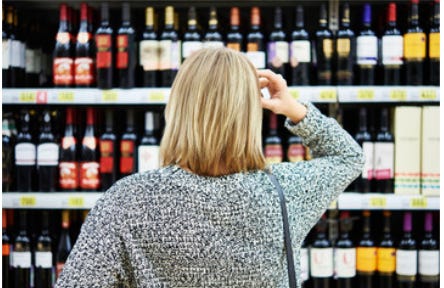








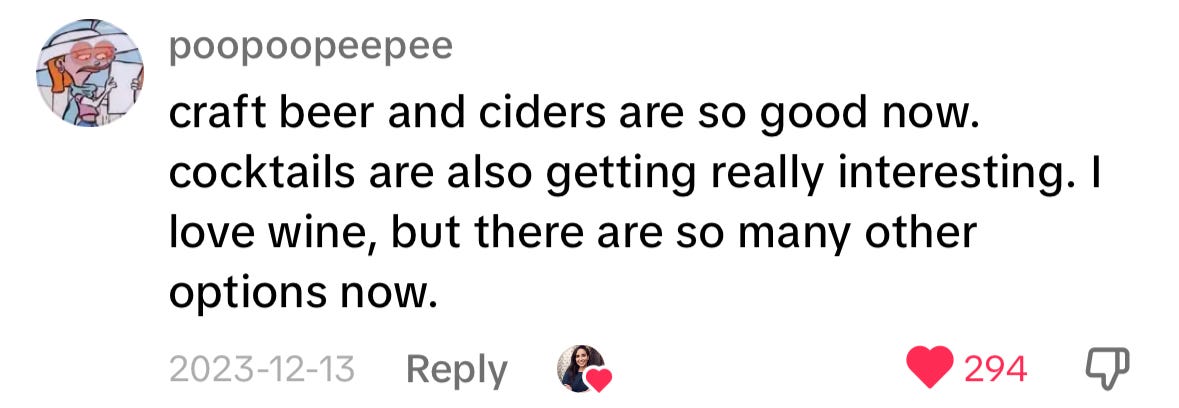



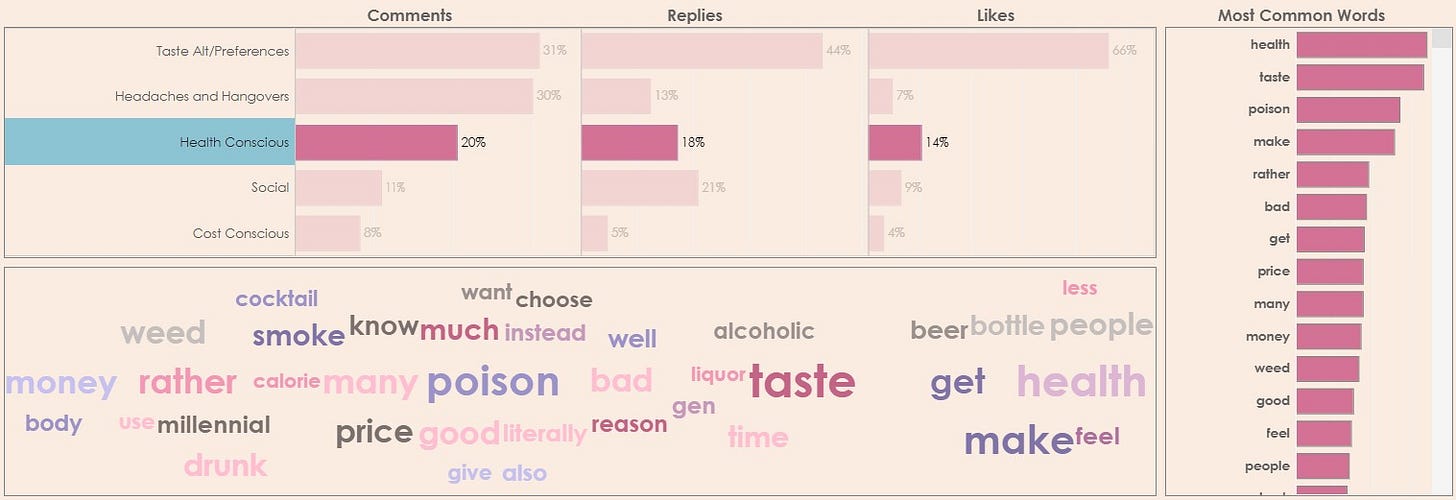






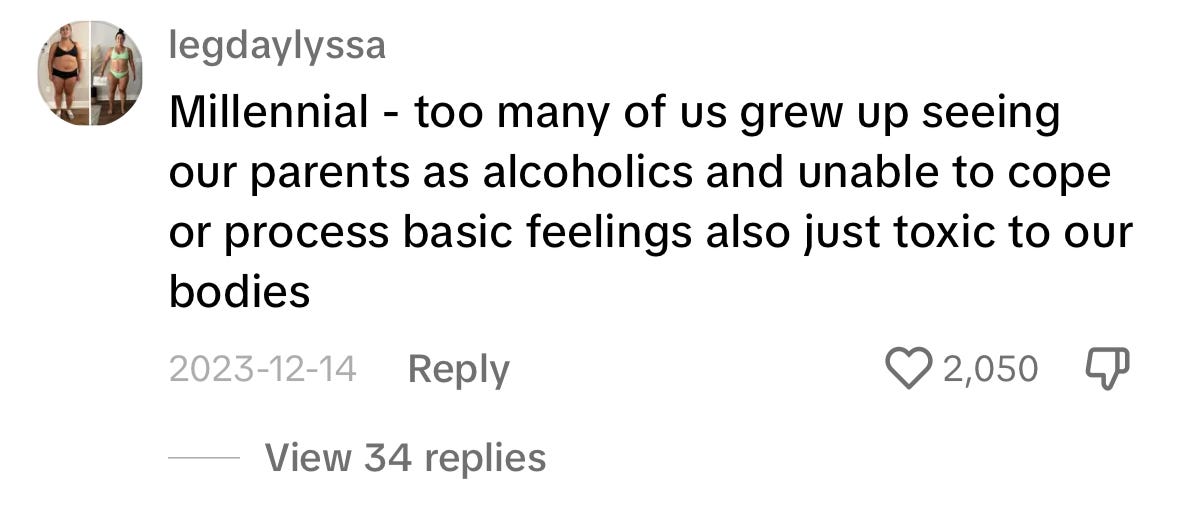







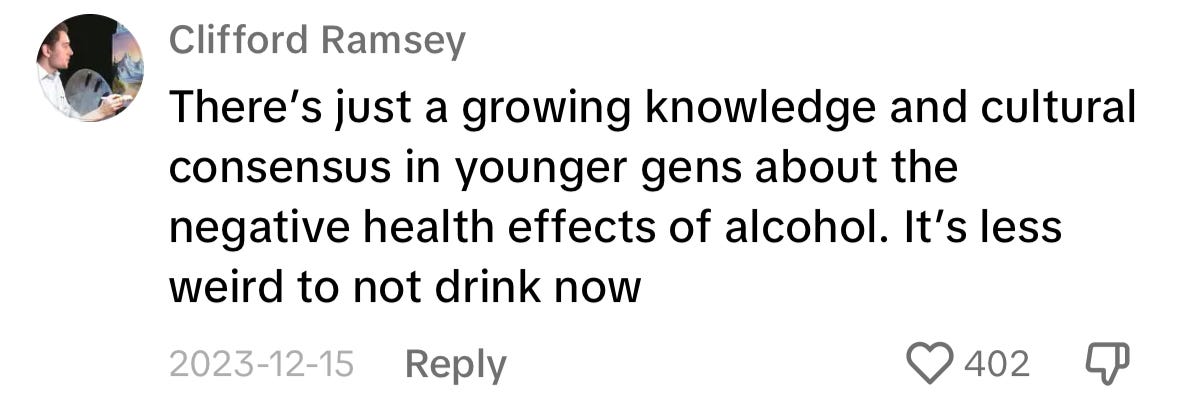
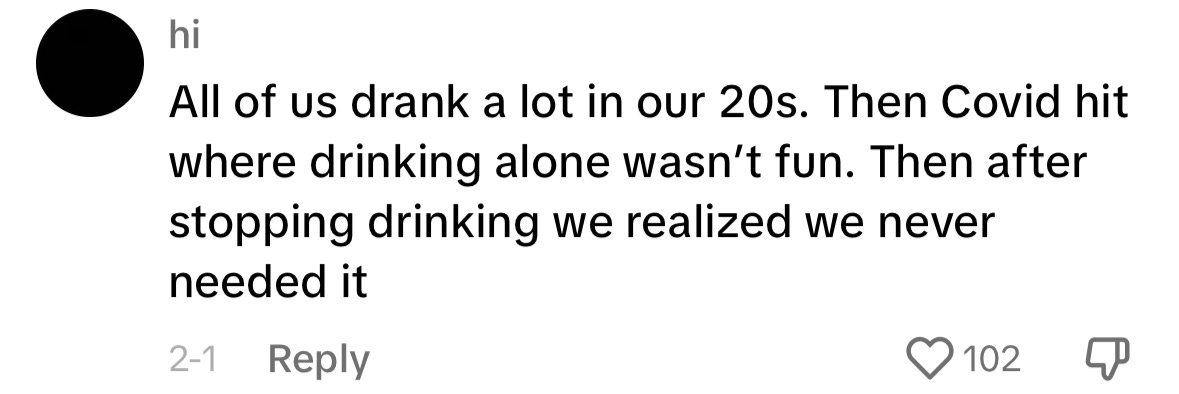












Your research reminded me of this Yellowtail case study. Basically they believe your first point is a MAJOR reason - wine is too confusing and too hard to find something that tastes good. https://www.blueoceanstrategy.com/teaching-materials/yellowtail/
Thank you for sharing all of that great information! i love that you got such a huge response.